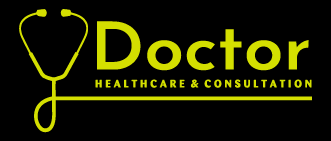Healthcare technology has been rapidly evolving, revolutionizing the way medical professionals provide care and improving patient outcomes across various disciplines. In recent years, family nursing has witnessed significant transformations with the integration of advanced healthcare technologies. These advancements have not only streamlined clinical processes but have also positively impacted patient care and outcomes.
If you are someone who has always been drawn to family nursing and want to develop the skillset to be a family nurse practitioner, you can start looking into the available range of msn fnp online programs through American International College. Their CCNE accredited programs paired with the thorough curriculum make it an easy choice for anyone curious about entering the nursing field. There has never been a better time to enter the career of your dreams!
Electronic Health Records (EHRs)
One of the most substantial changes in family nursing is the adoption of Electronic Health Records (EHRs). These digital records consolidate patients’ medical histories, treatment plans, test results, and other pertinent information into a single electronic file accessible by authorized healthcare providers. In the past, paper-based records often led to inefficiencies, difficulty in information sharing, and the potential for errors due to illegible handwriting or misplaced documents.
EHRs offer numerous advantages in family nursing practice. For instance, they enable seamless information sharing among healthcare providers, facilitating better coordination and continuity of care. When a family nurse has access to a patient’s complete medical history, they can make more informed decisions, ensuring treatments are tailored to individual needs and preferences. This level of precision and personalized care often leads to improved patient outcomes.
Telehealth and remote monitoring
The rise of telehealth and remote monitoring technologies has revolutionized the way family nurses provide care to their patients, especially in underserved or remote areas. Telehealth allows family nurses to conduct virtual consultations, enabling patients to access healthcare services without the need for in-person visits. Patients benefit from reduced travel time and expenses while receiving timely care from the comfort of their homes.
Remote monitoring devices have become increasingly popular for managing chronic conditions, such as diabetes, hypertension, and heart disease. These wearable devices track vital signs and other health metrics, transmitting the data to family nurses and other healthcare professionals in real-time. This continuous monitoring empowers family nurses to detect changes in patients’ health status promptly and intervene before serious complications arise. Consequently, patients experience improved disease management, better control of their conditions, and a reduced risk of hospitalization.
Health apps and wearable devices
The ubiquity of smartphones and wearable technology has opened up new possibilities for family nursing and patient engagement. Health apps and wearable devices offer a range of tools to help patients monitor and manage their health proactively. For instance, patients can use smartphone apps to track their daily physical activity, nutrition, and sleep patterns. These apps often come with personalized insights and recommendations to motivate patients to maintain a healthy lifestyle.
. These devices can track metrics like heart rate, blood pressure, and even stress levels. Family nurses can recommend and monitor the use of these devices, guiding patients in setting health goals and assessing progress over time. As patients become more engaged in their health, they are more likely to adhere to treatment plans and make positive lifestyle changes, which positively impact their health outcomes.
Genetic and personalized medicine
Advancements in genetics and personalized medicine have revolutionized the way family nurses approach patient care. With the availability of genetic testing, family nurses can assess patients’ genetic predispositions to certain diseases, such as hereditary cancers or cardiovascular conditions. Armed with this knowledge, family nurses can tailor treatment plans to suit each patient’s unique genetic makeup, ensuring that interventions are more targeted and effective.
Patient education and engagement
Effective patient education and engagement are critical components of successful healthcare outcomes. Healthcare technology offers numerous platforms for family nurses to deliver educational resources to patients conveniently. Online resources, mobile apps, and interactive tools allow family nurses to share information about various health conditions, treatment options, and self-management strategies.
Patients who are well-informed about their health conditions are more likely to actively participate in their care, follow prescribed treatments, and adopt healthier lifestyles. With the assistance of healthcare technology, family nurses can empower patients to take charge of their health, leading to improved treatment adherence and better health outcomes.
Data analytics and population health
The collection and analysis of health data has become integral to improving patient outcomes on a larger scale. Healthcare technology has enabled family nurses to leverage data analytics to identify patterns and trends in patient populations. By analyzing health data from a group of patients, family nurses can gain valuable insights into health risk factors, common diseases, and the effectiveness of certain treatments.
Population health management approaches help family nurses identify high-risk patients and implement preventive measures to reduce disease prevalence and improve overall community health. For example, data analytics can reveal trends in chronic disease prevalence within a specific region, prompting family nurses to design targeted interventions and educational campaigns to address those health issues.
Virtual collaboration and consultations
Advancements in healthcare technology have facilitated virtual collaboration among healthcare professionals, specialists, and experts from different locations. Family nurses can now easily consult with other healthcare providers and specialists, regardless of their physical location. This interdisciplinary approach ensures that patients receive comprehensive and holistic care, promoting better health outcomes.
The transformation of family nursing with advancements in healthcare technology has had a profound and positive impact on patient outcomes. From the integration of electronic health records and telehealth services to the use of health apps and wearable devices, technology has enhanced accessibility, personalized care, and patient engagement. Decision support systems, genetic medicine, and data analytics have empowered family nurses to make informed decisions and develop tailored treatment plans. Ultimately, the synergy between family nursing and healthcare technology has resulted in improved patient outcomes, setting the stage for a more efficient and patient-centered healthcare future. As technology continues to evolve, family nursing will undoubtedly continue to adapt and leverage innovations to further enhance patient care and well-being. The integration of healthcare technology is proving to be a game-changer in family nursing, revolutionizing the field and creating new possibilities for better patient outcomes and improved healthcare delivery.



